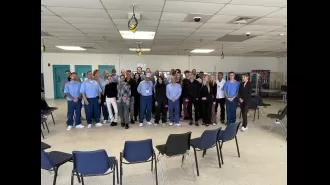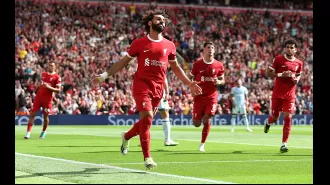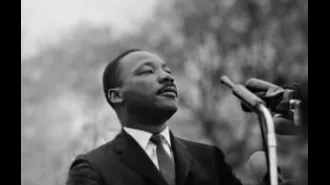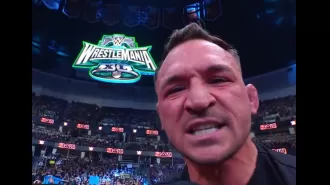Opposition MPs raise concerns about laws on simultaneous elections, while BJP parliamentarians offer their backing.
Parliamentary panel discusses the controversial simultaneous polls bills, with opposition members criticizing it as a threat to the Constitution and BJP MPs supporting it.
January 8th 2025.
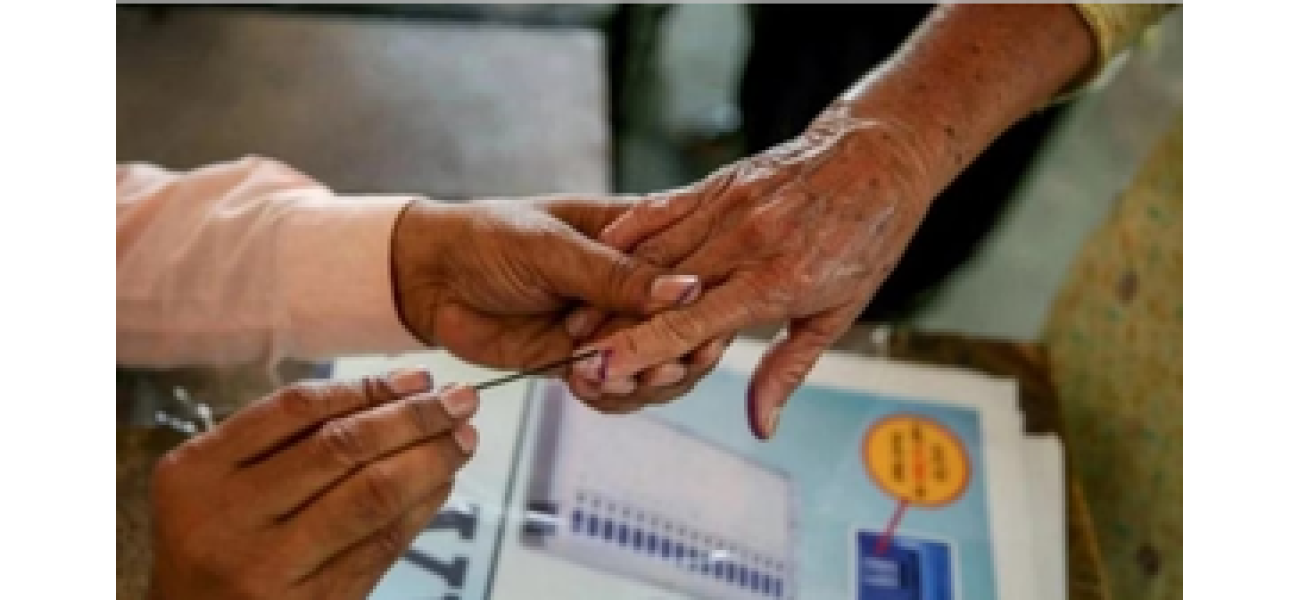
In New Delhi, a lively discussion took place during the first meeting of the parliamentary panel that is examining two bills regarding simultaneous elections. The members of the panel had differing opinions, with the opposition criticizing the concept as an attack on the core principles of the Constitution and federalism, while the BJP members praised it as a reflection of popular sentiment.
The 39-member Joint Parliamentary Committee began the meeting with a presentation by the Ministry of Law and Justice, which was followed by the MPs expressing their views and asking questions. Some of the opposition members, including Priyanka Gandhi Vadra from the Congress, raised doubts about the claim that simultaneous elections would reduce expenditure. They questioned if any analysis was done after the 2004 Lok Sabha elections, when Electronic Voting Machines were used for the first time in all 543 seats and were believed to have reduced costs.
On the other hand, BJP MPs dismissed the accusations that the "one nation one election" proposal goes against constitutional values by requiring the early dissolution of state assemblies and aligning their terms with that of the Lok Sabha. Sanjay Jaiswal pointed out that even in 1957, seven state assemblies were dissolved early to ensure that all state elections were held at the same time as the national elections. He questioned if eminent lawmakers, including then President Rajendra Prasad and members of the Nehru government, had violated the Constitution.
Another BJP MP, V D Sharma, argued that simultaneous elections were in line with the will of the people. He also mentioned that the high-level committee led by former President Ram Nath Kovind had consulted over 25,000 members of the public, with the majority of them supporting the idea. The BJP MPs reiterated their stance that a continuous cycle of elections hinders development and growth and is a burden on the country's finances. They believe that "one nation one election" would promote growth and development.
Shiv Sena, represented by Shrikant Shinde, shared their experience in Maharashtra, where Lok Sabha, assembly, and local body elections are held one after the other within a short span of time. They emphasized that this disrupts development work as the entire state machinery is focused on conducting elections.
Several opposition MPs, including those from Congress, DMK, and Trinamool Congress, echoed their party's views that the proposed laws go against the Constitution and are an attack on federalism. A TMC MP stated that safeguarding people's democratic rights is more important than saving money.
Some opposition MPs suggested that the Joint Committee of Parliament, headed by former Union Minister P P Chaudhary, should be given a tenure of at least one year due to the complexity of the task. V Vijayasai Reddy from the YSR Congress, who had previously supported the concept in their submission to the Kovind committee, raised concerns about the bills and demanded that ballot papers should replace Electronic Voting Machines, which they believe are vulnerable to manipulation. Reddy argued that simultaneous elections would marginalize regional parties, diminish diversity in representation and local issues, and reduce the need for elected representatives to regularly engage with voters, turning elections into a contest between two or three national parties.
JD MP Sanjay Jha brought up the issue of booth capturing in Bihar during the use of ballot papers, refuting the suggestion to bring them back. However, the BJP ally also raised questions, such as whether a government elected for a short term would have the same level of focus on governance as an incumbent with a five-year term.
The two bills, the Constitution Bill and the Union Territories Laws Bill, were introduced in the Lok Sabha during the recent Winter Session and referred to the committee for examination. The government decided to increase the committee's strength from 31 to 39, as more political parties expressed interest in being a part of the process. The committee includes former Union ministers, Anurag Thakur, Parshottam Rupala, and Manish Tewari, along with several other lawmakers, such as Bhartruhari Mahtab, Anil Baluni, Bansuri Swaraj, and Sambit Patra. Out of the 39 members, 27 are from the Lok Sabha, and 12 are from the Rajya Sabha.
At the meeting, all MPs were given a trolley containing over 18,000 pages of material, including one volume of the Kovind committee report in both Hindi and English, and 21 volumes of annexure, along with a soft copy. It is evident that the discussion surrounding simultaneous elections is complex and requires thorough examination, which is why the Joint Committee of Parliament has been tasked with scrutinizing the two bills.
The 39-member Joint Parliamentary Committee began the meeting with a presentation by the Ministry of Law and Justice, which was followed by the MPs expressing their views and asking questions. Some of the opposition members, including Priyanka Gandhi Vadra from the Congress, raised doubts about the claim that simultaneous elections would reduce expenditure. They questioned if any analysis was done after the 2004 Lok Sabha elections, when Electronic Voting Machines were used for the first time in all 543 seats and were believed to have reduced costs.
On the other hand, BJP MPs dismissed the accusations that the "one nation one election" proposal goes against constitutional values by requiring the early dissolution of state assemblies and aligning their terms with that of the Lok Sabha. Sanjay Jaiswal pointed out that even in 1957, seven state assemblies were dissolved early to ensure that all state elections were held at the same time as the national elections. He questioned if eminent lawmakers, including then President Rajendra Prasad and members of the Nehru government, had violated the Constitution.
Another BJP MP, V D Sharma, argued that simultaneous elections were in line with the will of the people. He also mentioned that the high-level committee led by former President Ram Nath Kovind had consulted over 25,000 members of the public, with the majority of them supporting the idea. The BJP MPs reiterated their stance that a continuous cycle of elections hinders development and growth and is a burden on the country's finances. They believe that "one nation one election" would promote growth and development.
Shiv Sena, represented by Shrikant Shinde, shared their experience in Maharashtra, where Lok Sabha, assembly, and local body elections are held one after the other within a short span of time. They emphasized that this disrupts development work as the entire state machinery is focused on conducting elections.
Several opposition MPs, including those from Congress, DMK, and Trinamool Congress, echoed their party's views that the proposed laws go against the Constitution and are an attack on federalism. A TMC MP stated that safeguarding people's democratic rights is more important than saving money.
Some opposition MPs suggested that the Joint Committee of Parliament, headed by former Union Minister P P Chaudhary, should be given a tenure of at least one year due to the complexity of the task. V Vijayasai Reddy from the YSR Congress, who had previously supported the concept in their submission to the Kovind committee, raised concerns about the bills and demanded that ballot papers should replace Electronic Voting Machines, which they believe are vulnerable to manipulation. Reddy argued that simultaneous elections would marginalize regional parties, diminish diversity in representation and local issues, and reduce the need for elected representatives to regularly engage with voters, turning elections into a contest between two or three national parties.
JD MP Sanjay Jha brought up the issue of booth capturing in Bihar during the use of ballot papers, refuting the suggestion to bring them back. However, the BJP ally also raised questions, such as whether a government elected for a short term would have the same level of focus on governance as an incumbent with a five-year term.
The two bills, the Constitution Bill and the Union Territories Laws Bill, were introduced in the Lok Sabha during the recent Winter Session and referred to the committee for examination. The government decided to increase the committee's strength from 31 to 39, as more political parties expressed interest in being a part of the process. The committee includes former Union ministers, Anurag Thakur, Parshottam Rupala, and Manish Tewari, along with several other lawmakers, such as Bhartruhari Mahtab, Anil Baluni, Bansuri Swaraj, and Sambit Patra. Out of the 39 members, 27 are from the Lok Sabha, and 12 are from the Rajya Sabha.
At the meeting, all MPs were given a trolley containing over 18,000 pages of material, including one volume of the Kovind committee report in both Hindi and English, and 21 volumes of annexure, along with a soft copy. It is evident that the discussion surrounding simultaneous elections is complex and requires thorough examination, which is why the Joint Committee of Parliament has been tasked with scrutinizing the two bills.
[This article has been trending online recently and has been generated with AI. Your feed is customized.]
[Generative AI is experimental.]
0
0
Submit Comment

